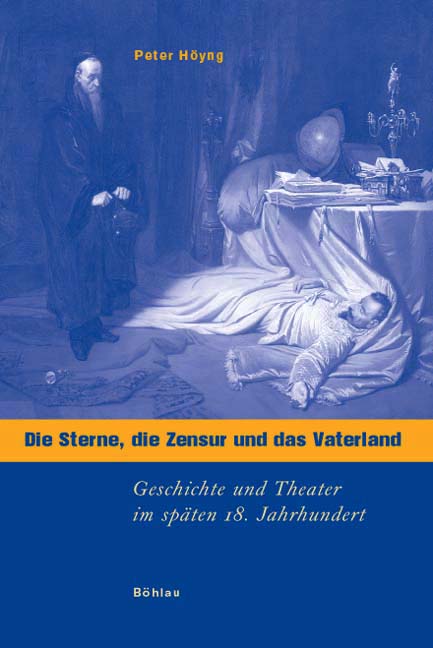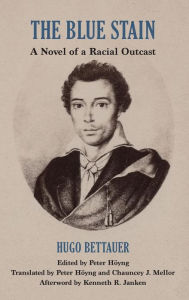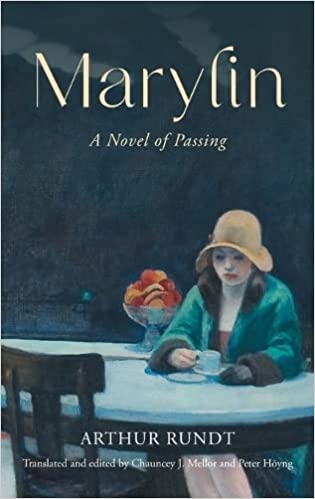Peter HoyngProfessor of German StudiesDirector Of Outreach And Engagement
Office Hours
Educational Background
Peter Höyng [pronounced Hö-ing] studied Germanistik and European history in Bonn and Siegen and received his Ph.D. in German literature at the University of Wisconsin-Madison. After years of teaching, research, and service at the University of Tennessee-Knoxville, he joined the faculty of the German Studies Department at Emory’s College of Arts & Sciences in 2005.
Research Areas
As a scholar of German-language cultural productions, Höyng investigates and situates artistic activity within its historical context, critically examining its continued significance in the early twenty-first century. This scholarly focus has led to his specialization in five interrelated fields: (a) dramatic texts within their performative contexts;
(b) the works of assimilated German-Jewish artists, activists, and intellectuals;
(c) German-speaking narratives on anti-Black racism in Europe and the US in the early twentieth century;
(d) interactions between literature and classical music;
(e) German-Austrian culture in Vienna as a political-geographic center merging the above strands. Due to his research interest in German-Jewish cultural history, Höyng is an affiliated faculty with the Tam Institute for Jewish Studies.
Publications
Divergent as these five areas may seem, Höyng’s interdisciplinary approaches often overlap, such as when interpreting Elfriede Jelinek’s play Winterreise, inspired by Schubert’s last song cycle, in conjunction with Georg Simmel’s “Exkurs über den Fremden” (The Stranger), or when analyzing Beethoven’s Ninth Symphony through the eyes of Stanley Kubrick’s movie A Clockwork Orange. Likewise, Höyng’s interest in Austrian Jewish cultural history eventually led to the discovery, editing, and co-translation with Chauncey J. Mellor of Hugo Bettauer’s 1922 novel The Blue Stain. A Novel of a Racial Outcast and Arthur Rundt’s 1926 novel Marylin. A Novel of Passing; both novels are fighting racism in the US.
Previously, Höyng’s integrative approach to different fields emerged in his monograph interconnecting discourses of history, drama, and theater: Die Sterne, die Zensur und das Vaterland: Geschichte und Theater im späten 18. Jahrhundert (2003), and his edited volume on the Jewish dramatist George Tabori Verkörperte Geschichtsentwürfe: George Taboris Theaterarbeit. Embodied Projections on History: George Tabori’s Theater Work (1998).
Currently, Höyng is completing his book project, “Beethoven in the Age of Censorship.” In addition to his books, Höyng has published about fifty essays in peer-reviewed journals and edited volumes.
Recent Peer-reviewed Essays
(2024): “A Call for a Concert of Eavesdroppers: Beethoven’s Conversation Notebooks.” In: German and European Cultural Histories, 1760-1830: Between Network and Narrative. Eds. Birgit Tautz and Crystal Hall. Liverpool: Liverpool UP, 2024. 231-251.
(2021): “Three Observations and Three Possible Directions: Musical and Eighteenth-Century Studies.” Goethe Yearbook 28 (2021): 323-327.
(2021): „Mußt Du nicht längst kolonisieren“? Eine postkoloniale Lektüre von Faust als althergebrachter Landesherr und moderner Kolonialpolitiker.“
In: „Land in Sicht!“ Literarische Inszenierungen von Landnahmen und ihren Folgen. Eds. Anna-Marie Post and Michaela Holdenried. Berlin: Erich Schmidt, 2021. 217-233.
(2021): “A Visceral Circus Experience: Death Camps in the Time of Coronavirus.”
The Opera Quarterly (2021): 1-6. https://doi.org/10.1093/oq/kbab001
(2018): “Desires for a Third Space: A Critique of Jelinek’s Winterreise by Reading Georg Simmel’s Exkurs über den Fremden.”
In: New Perspectives on Contemporary Austrian Studies. Ed. Katya Krylova. Oxford: Peter Lang, 2018. 273-292.
(2018): “’Denn Gehorsam ist die erste Pflicht freier Männer’: Eulogius Schneider as a Paradigm for the Dialectic of Entligthenment.”
In: The Radical Enlightenment in Germany. Ed. Carl Niekerk. Amsterdam: Brill, 2018. 310-327.
(2016): "Der Notlicht-Skandal als Backstage-Nachspiel. Beobachtungen zu Bernhards Der Ignorant und der Wahnsinnige anhand von Hennetmairs Tagebuch.”
In: The Journal of Austrian Studies, 49.3-4 (2016): 43-64.
(2016): “Goethes Iphigenie als Opfer und seine Iphigenie auf Tauris als Opfergabe.“
In: Making Sacrifices-Opfer bringen. Visions of Sacrifice in European and American Cultures - Opfervorstellungen in europäischen und amerikanischen Kulturen. Eds. Nicholas Brooks and Gregor Thuswaldner. Vienna: New Academic Press, 2016. 18-32.
(2014) : “Die Begräbnisfeier für Otto Habsburg aus der ‘Fenstersicht’ von Thomas Bernhards Auslöschung. Ein Zerfall.”
In: The Journal of Austrian Studies, 47.2 (2014): 83-103.
(2014): “Mephistopheles’ Flohlied Meets Beethoven’s Devilish Sting.” In: Publications of the English Goethe Society, vol. 84.2 (2014): 77-88.
(2013): “’The Gospel of World Harmony’ or Beethoven’s Transformation of Schiller’s An die Freude into World Music Literature.” In: Modern Language Quarterly, vol. 74.2 (June 2013): 261-276.
(2013): “Kleist und Beethoven als ‘Generation Napoleon’ oder ästhetische Dartstellungen von Gewalt.” In: Heinrich von Kleist – Style and Concept: Explorations in Literary Dissonance. Eds. Dieter Sevin and Christoph Zeller. Berlin: de Gruyter, 2013. 287-300.
(2012):“Leaving Behind the Summit: Tracking Biographical and Philosophical Pathways in Richard Strauss’s Eine Alpensinfonie.” In: Heights of Reflection: Mountains in the German Imagination from the Middle Ages to the Present. Eds. Sean Ireton and Caroline Schaumann. Rochester, NY: Camden House, 2012. 231-247.
(2011):“Im Echoraum der Literatur: Kulturpolitische Bedingungen des literarischen Diskurses in Österreich.“ In: Zeitenwende: Österreichische Literatur seit dem Millennium, 2000-2010. Eds. Michael Boehringer and Susanne Hochreiter. Wien: Praesens, 2011. 64-81.
(2011):“Ambiguities of Violence in Beethoven’s Ninth through the Eyes of Stanley Kubrick’s A Clockwork Orange” In: The German Quarterly (2011) vol. 84.2: 159-176.
(2010):“’For Heaven’s Sake: I have You Walk Into the Dark.’ Grillparzer’s Containment of Beethoven and the Ambivalences of their Melusina-Project.” Goethe Yearbook vol. 17 (2010): 275-302.
(2009): “A Dream of a White Vienna after World War I: Hugo Bettauer’s The City Without Jews and The Blue Stain.” In: At Home and Abroad: Historicizing Twentieth-Century Whiteness in Literature and Performance. Ed. La Vinia Delois Jennings. Knoxville: University of Tennessee Press, 2009. 29-60.
(2009): “Re-reading Peter Szondi’s Theorie des modernen Dramas (1956/63): From absolute Drama to absolute Theory.” In: Monatshefte, vol. 101.3 (2009): 314-22.
Grants and Awards
Höyng has been awarded numerous institutional research grants and secured several grants for his scholarship and teaching from organizations such as the DAAD (German Academic Exchange Service), the Max Kade Foundation, the Checkpoint Charlie Foundation, and the Claus Halle Foundation. In 2002, he received the Jefferson Prize from the University of Tennessee for his excellence in research. In the spring semester of 2013, he was a Fulbright Senior Research Fellow at the Institut für Kulturwissenschaften (Institute for Cultural Studies) in Vienna, Austria. In 2021, he was recognized twice for teaching as Professor of the Year by the AATG-Georgia Chapter and the Emory College Language Center for Excellence in Teaching.
In addition, he secured three funding sources for students for the department’s longstanding summer program in Vienna: one by the Max Kade Foundation since 2006, one by establishing the Viola Westbrook Endowed Scholarship, and one by the Monique and Ferdinand Seefried Scholarship Fund. He also secured various grants from Atlanta’s Claus Halle Foundation in recent years.
Teaching
Höyng enjoys teaching all levels of German language, literature, and culture, including first-year seminars and special topic courses. He has offered cultural and literary courses at the undergraduate and graduate levels that reflect his interdisciplinary research areas from Goethe to Brecht, from the Berlin Wall to Jewish culture in Vienna. Recent classes have included, among others:
- GER 101: Beginning German, Fall 2018, 2023
- GER 201: Fall 2016, 2017
- GER 202: Spring 2016, 2018
- GER 320: Business German, Spring 2023
- GER 190: Great German Books in Translation, Fall 2017, Spring 2020
- GER 190: Transnational Intersections: Views on African American Culture from Austria and Germany, Spring 2023
- GER 375-A: The Ringstrasse in Vienna, Summer 2015, 2016
- GER 375-A: Habsburg als Kolonisator: Galizien, Summer 2022
- GER 375: Capstone Course on German Studies, Fall 2021
- GER 470: Verdrängte Vergangenheit (co-taught with Sharon Weiner), Spring 2019
Administrative Experience
Höyng has served as Chair of the German Studies Department between 2005 and 2021 for a total of twelve years. Under his guidance, the Department was designated as a Center of Excellence by the American Association of Teachers of German (AATG), one of two nationally recognized in the first year of its existence. At the College level, he was elected Faculty Senate President of Emory College Arts & Science and served his term during the Academic Year of 2020-2021. In addition, he has served as co-director of the Mellon Grant for Pathways in Humanities from 2019 through 2024 and mentored early career faculty in the college from 2020 to 2022. Currently, he serves as an elected member of the Tenure and Promotion Committee since 2023. Outside of Emory, he also served as an elected member of the Executive Committee from 2007 to 2009 of The American Association for Teachers in German (AATG).





